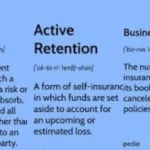Golf is a beloved sport for many, offering a mix of strategy, skill, and outdoor enjoyment. Playing 9 holes is a great way to squeeze in a quick game when you’re short on time or want a less demanding round. But how long does it actually take to play 9 holes of golf? The answer depends on several factors, including your skill level, the pace of play, the type of course, and even how you navigate the course. This article dives into these details to give you a comprehensive understanding of what to expect.
Average Time for 9 Holes
The average time to play 9 holes typically ranges from 1.5 to 2.5 hours. For solo players or small groups with experience, it may take closer to 1.5 hours. Larger groups, beginners, or those playing on a busy course could take up to 3 hours. The variability lies in the dynamics of the game, the course, and the players themselves.
Key Factors Influencing Playtime
1. Skill Level of the Players
One of the most significant factors influencing how long 9 holes take is the skill level of the players.
- Experienced Golfers: These players often complete their rounds faster because of consistent swings, fewer errors, and better ball control. They spend less time searching for lost balls or making additional shots.
- Beginners: Novices typically take longer to play 9 holes. They may need extra strokes to reach the hole and often spend more time assessing shots or recovering from mistakes.
2. Group Size
The number of players in a group directly impacts the time required to complete 9 holes.
- Solo Player: A single golfer moving at their own pace can finish 9 holes in as little as 1 to 1.5 hours.
- Twosome: Two players usually take about 2 hours, depending on their skill levels and how they interact during the game.
- Foursome: A full group of four players will naturally take longer, averaging between 2.5 and 3.5 hours.
The more people in a group, the more time is spent waiting for turns, discussing strategies, and engaging in social interactions.
3. Walking vs. Using a Golf Cart
The mode of transportation across the course plays a big role in determining playtime.
- Walking: Walking the course adds extra time, as it involves covering the distance between shots and holes on foot. For a standard 9-hole course, walking might extend the playtime by 30 minutes or more.
- Using a Cart: Golf carts speed up the process significantly. With a cart, golfers can reach their ball quicker, saving valuable minutes.
4. Course Layout and Difficulty
The design and challenge level of the course are also important considerations.
- Flat and Open Courses: Courses with fewer hazards and a straightforward layout are faster to navigate and play through.
- Challenging Courses: Courses with bunkers, water hazards, dense rough, and complex greens can slow down play as players take extra care to plan shots or recover from mistakes.
5. Course Traffic
Peak times at golf courses often see multiple groups playing simultaneously. Waiting for other groups to complete a hole can add significant delays, especially on popular or high-demand courses.
Comparison of Play Times for 9 Holes
Here’s a breakdown of estimated times based on group size and mode of transportation:
| Group Size | Walking | Using a Cart |
|---|---|---|
| Solo Player | 1.5 hours | 1 hour |
| Two Players | 2 hours | 1.5 hours |
| Four Players | 3–3.5 hours | 2.5–3 hours |
These times are approximations and can vary depending on other factors like course conditions and player pace.
Strategies to Improve Pace of Play
If you’re looking to reduce the time it takes to play 9 holes, here are some practical tips:
1. Play Ready Golf
Instead of strictly following the rule where the farthest player from the hole plays first, encourage players to hit their shots when ready. This simple adjustment can save several minutes per hole.
2. Familiarize Yourself with the Course
Knowing the layout of the course in advance helps players make quicker decisions. Familiarity reduces the time spent searching for fairways, greens, or the next tee box.
3. Minimize Time Searching for Balls
Lost balls can significantly slow down a game. To avoid unnecessary delays:
- Use brightly colored balls to make them easier to spot.
- Limit search time to a maximum of three minutes.
4. Organize Your Equipment
Keep your clubs and other gear well-organized for easy access. When you’re not fumbling through your bag, you can focus on the game and move to the next shot faster.
5. Avoid Peak Times
Booking your round during off-peak hours can significantly reduce waiting time on the course, allowing for a quicker game.
Why Play 9 Holes?
Playing 9 holes has become increasingly popular, offering several advantages over an 18-hole round.
- Time-Friendly: For those with busy schedules, 9 holes provide a shorter, more manageable option.
- Cost-Effective: Many courses offer discounted rates for 9-hole rounds, making it an affordable choice.
- Beginner-Friendly: New golfers often find 9 holes less intimidating and tiring, making it an ideal introduction to the game.
- Flexibility: It’s perfect for fitting in a quick game before work, during a lunch break, or after a long day.
Example Scenario: Two Players with a Cart
Imagine two experienced golfers using a cart on a relatively simple course:
- Arrival and Warm-Up: They arrive early, warm up on the driving range for 15 minutes, and start their game on time.
- Playtime: Each hole takes an average of 12 minutes, allowing them to finish 9 holes in about 1.5 hours.
- Wrap-Up: Afterward, they have time for a drink at the clubhouse, making it a relaxing yet efficient outing.
Contrast this with a foursome of beginners walking the same course. Their time would likely stretch closer to 3 hours due to longer shots, more time spent searching for balls, and additional discussions about technique.
Common Misconceptions About 9-Hole Play
“It’s Only for Beginners”
While shorter rounds are beginner-friendly, they’re also perfect for experienced players seeking a quick practice session or a relaxed game.
“It Doesn’t Count as Real Golf”
Many leagues and competitions include 9-hole rounds, demonstrating that it’s a legitimate format of play.
“It’s Always Faster”
Though shorter than 18 holes, 9 holes can still take longer than expected if factors like group size, course traffic, or skill levels aren’t managed efficiently.
YouTube Guide to Faster Play
For visual learners, watching a video on improving pace of play can be incredibly helpful. Many tutorials offer practical advice on maintaining a steady pace, reducing delays, and optimizing your time on the course. A quick search for “golf pace of play tips” can lead you to useful resources.
Conclusion
The time it takes to play 9 holes of golf can vary widely, influenced by factors like skill level, group size, and course layout. On average, expect a duration of 1.5 to 2.5 hours. By understanding the key variables and implementing strategies to improve your pace, you can enjoy a smooth and efficient game that fits perfectly into your schedule.
Whether you’re a solo golfer or part of a group, playing 9 holes offers the perfect balance of challenge and convenience, making it an excellent choice for enthusiasts of all levels.











